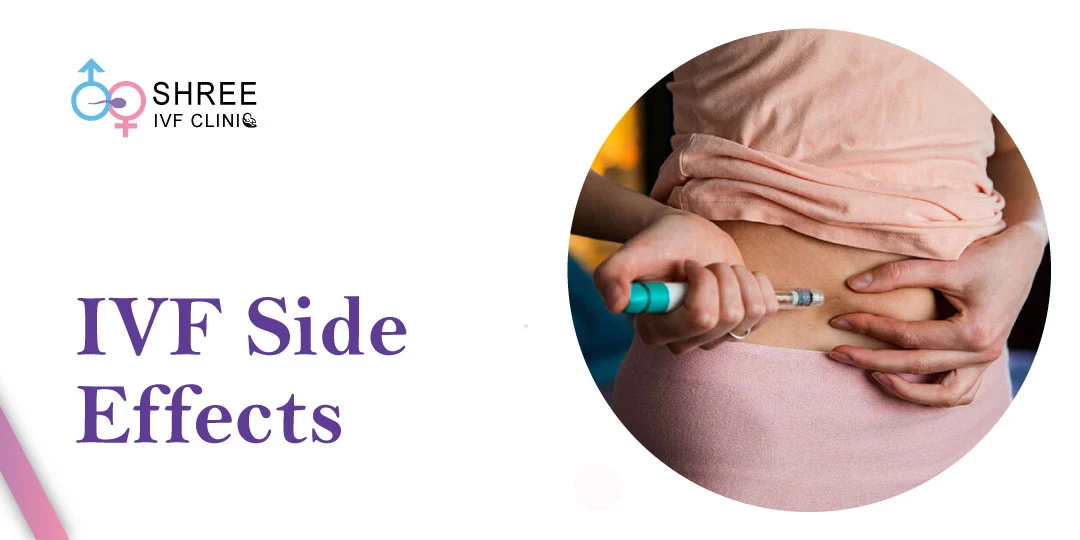Period Problems Post-IVF Failure: Seeking Medical Advice – Dr. Jay Mehta
UPDATED ON 13 NOV. 2023
In this article, we will explore the common menstrual issues that can arise after unsuccessful IVF attempts and the importance of seeking medical advice. Our aim is to provide in-depth information and support to those navigating this challenging journey.

AUTHOR
Dr Jay Mehta
TREATMENT
CONDITION
Failed IVF
GET IN TOUCH ON
Understanding IVF and its Outcomes
By emphasizing the complexity of IVF, we hope to provide a comprehensive understanding of the process and the potential challenges along the way.
Menstrual Changes and Post-IVF Symptoms
Additionally, we will explore the emotional impact that these changes can have on individuals, acknowledging the feelings of disappointment, frustration, and grief that may accompany them. By sharing personal stories and experiences, we hope to offer reassurance and validation to those going through similar struggles.
Are you experiencing unexpected menstrual changes?
Dr. Jay Mehta, renowned IVF Specialist in Mumbai, is here to guide you through every step of your fertility journey.
Common Hormone-Related Issues
-
- Inadequate Response:
Occasionally, the ovaries may not respond adequately to the stimulation medication, resulting in a lower number of mature eggs. This can be caused by various factors, such as age, ovarian reserve, or underlying health conditions.
- Inadequate Response:
-
- Ovarian Hyperstimulation Syndrome (OHSS): In some cases, the ovaries may overrespond to the stimulation medication, leading to OHSS. This condition can cause abdominal pain, bloating, and fluid accumulation in the abdomen. Close monitoring of hormone levels helps prevent and manage OHSS.
- Hormone Imbalances: Hormone imbalances during IVF can affect the quality of eggs, the receptivity of the uterine lining, and the overall success rate. Imbalances can result from various factors, including stress, lifestyle choices, and underlying medical conditions.
Understanding these potential issues can help individuals and couples undergoing IVF navigate the process with greater awareness and preparedness.
Read More: 6 failed ivf cycles any hope
Diagnostic Tools and Monitoring
- Blood Tests: Regular blood tests are conducted to measure hormone levels, such as FSH, LH, estrogen, and progesterone. These tests provide valuable insights into the body’s response to the stimulation medication and guide adjustments to the treatment plan.
- Ultrasounds: Transvaginal ultrasounds are used to monitor follicle growth, assess the thickness of the uterine lining, and track the progress of the IVF cycle. These imaging tests provide a visual representation of the body’s hormonal response.
- Ongoing Communication: Effective communication between patients and gynaecologists is vital throughout the IVF journey. Open discussions about hormone levels and any concerns or symptoms experienced enable gynaecologists to make timely adjustments and provide necessary support.
Factors Influencing Hormone Levels
-
- Age: Advanced maternal age can impact hormone levels and fertility. As women get older, the quantity and quality of eggs decrease, which can affect hormone production and response during IVF.
-
- Lifestyle Factors: Maintaining a healthy lifestyle can positively impact hormone levels. Regular exercise, a balanced diet, adequate sleep, and stress management techniques can contribute to hormonal balance and overall reproductive health.
-
- Body Mass Index (BMI): Both underweight and overweight individuals may experience hormone imbalances. Achieving a healthy BMI through proper nutrition and exercise can optimize hormone levels for IVF success.
-
- Underlying Medical Conditions: Certain medical conditions, such as polycystic ovary syndrome (PCOS) or thyroid disorders, can affect hormone levels. Managing these conditions with appropriate medical interventions can help regulate hormonal imbalances.
- Medications and Supplements: Some medications and supplements can interfere with hormone levels. It is important to disclose all medications and supplements to the gynaecologists to ensure optimal hormone regulation during IVF.
Read More: Why Does IVF Fail?
Strategies for Hormone Level Optimization
- Personalized Treatment Plans: Each individual’s body responds differently to IVF protocols. By working closely with experienced fertility specialists, a personalized treatment plan can be developed to address specific hormonal needs and optimize outcomes.
- Nutritional Support: A well-balanced diet rich in fruits, vegetables, whole grains, lean proteins, and healthy fats can support hormone production and balance. Consulting with a nutritionist can provide guidance on fertility-friendly foods and supplements.
- Stress Reduction Techniques: High stress levels can negatively impact hormone production and response. Engaging in relaxation techniques such as meditation, yoga, deep breathing exercises, or therapy can help alleviate stress and promote hormonal balance.
- Follow Medical Advice: Adhering to prescribed medication dosages, timing, and instructions is crucial for maintaining optimal hormone levels. Consistency and compliance with the treatment plan recommended by gynaecologists ensure the best chances of success.
- Emotional Support: The IVF journey can be emotionally challenging. Seeking support from loved ones, support groups, or professional counselors can help alleviate anxiety and stress, promoting hormonal balance.
Tips for a Successful IVF Journey
- Educate Yourself: Understand the IVF process, the role of hormones, and potential challenges. Being well-informed empowers you to actively participate in decision-making alongside gynaecologists.
- Open Communication: Establish a strong rapport with your fertility specialist. Effective communication allows for clear understanding, personalized care, and timely adjustments to optimize hormone levels.
- Self-Care: Prioritize self-care activities that promote physical and emotional well-being. Engage in activities you enjoy, practice self-compassion, and seek support when needed.
- Patience and Resilience: IVF can be a rollercoaster journey with ups and downs. Cultivate patience and resilience, knowing that each person’s path is unique. Stay positive and maintain hope.
Conclusion
By familiarizing themselves with the basics of hormone levels, potential issues, diagnostic tools, and strategies for optimization, individuals can navigate their IVF journey with confidence and informed decision-making.
Remember, every individual’s fertility journey is unique, and with the support of experienced professionals, personalized care, and a patient-centered approach, the dream of parenthood can become a reality.
AUTHOR
Dr Jay Mehta
TREATMENT
CONDITION
Failed IVF
CALL US 24/7 FOR ANY HELP
GET IN TOUCH ON
Share Article on
Recommended Reading
Should I Do IVF After 3 Miscarriages?
Yes, IVF can be a strong option after repeated miscarriages. Combined with genetic testing, it helps increase the chance of a healthy pregnancy
What Are the Side Effects of IVF?
Know the side effects of IVF, from mild pain to hormonal changes, and get expert advice as you start your fertility journey.
After IVF Transfer Pregnancy Symptoms
Learn about early pregnancy signs after embryo transfer, including cramping, spotting or light bleeding, fatigue, breast tenderness, and nausea.




